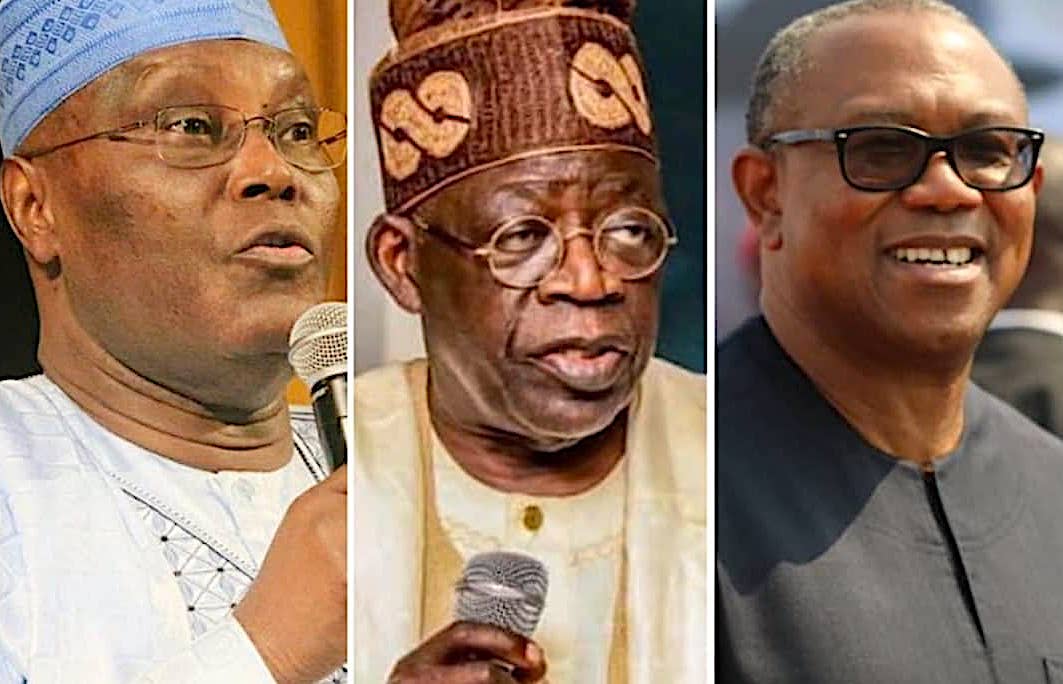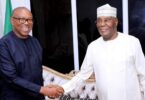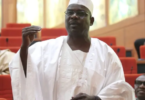
ABUJA — Determined to nullify the election of President Bola Tinubu, candidate of the Peoples Democratic Party, PDP, Alhaji Atiku Abubakar and his counterpart in the Labour Party, LP, Mr. Peter Obi, yesterday, lodged separate appeals before the Supreme Court.
The two candidates, in their appeals, prayed the apex court to set aside the judgment of the Presidential Election Petition Court, PEPC, which affirmed Tinubu of the ruling All Progressives Congress, APC, as the winner of the February 25, presidential election.
Specifically, they argued that the lower court erred in its judgment because Tinubu did not get at least 25 per cent of votes cast in the Federal Capital Territory, FCT, Abuja, adding that the Independent National Electoral Commission, INEC, deliberately refused to transmit the results of the poll electronically to its portal in accordance with its guidelines.
They also argued that the PEPC glossed over their claims of manipulation of the poll, conducted in breach of the constitution and electoral act in spite of their weighty evidence.
Whereas Atiku, through his consortium of 67 lawyers that comprised 18 Senior Advocates of Nigeria led by Chief Chris Uche, SAN, filed 35 grounds of appeal to challenge Tinubu’s victory, Obi, through his own team of lawyers led by Dr. Livy Uzoukwu, SAN, filed 51 grounds of appeal before the apex court.
PEPC verdict, a grave miscarriage of justice – Atiku
Specifically, Atiku, in his appeal, maintained that the verdict of the Justice Haruna Tsammani-led five-member panel of the Court of Appeal, which had on September 6, dismissed his petition against the outcome of the presidential election, was not only “against the weight of evidence” but occasioned a grave miscarriage of justice against him.
The former Vice President insisted that the PEPC panel erred in law, when it failed to nullify the presidential election on the grounds of non-compliance with the Electoral Act, 2022, even when evidence that was adduced before it showed that the Independent National Electoral Commission, INEC, acted in breach of extant laws and regulations guiding the conduct of elections.
He accused the PEPC of reaching its unanimous decision based on gross misconstruction and misrepresentation of provisions of both the 1999 Constitution, as amended, and the Electoral Act, 2022.
His words: “The lower court erred in law when it refused to uphold the mandatoriness of electronic transmission of results for confirmation and verification of final results introduced by the Electoral Act 2022 for transparency and integrity of results in accordance with the principles of the Act.”
Deliberate non-compliance with election guidelines
He argued that Section 64(4) & (5) of the Electoral Act, as well as INEC’s Regulations and Guidelines for the conduct of the election, which he tendered in evidence, made mandatory, the use of the Bimodal Voter Accreditation System, BVAS, machines for electronic transmission of results of the election directly from the polling units to INEC’s collation system for the verification, confirmation and collation of results before announcement.
Atiku told the apex court that some of the presiding officers who personally handled the BVAS machines at polling units on the election day, had in their testimony before the PEPC, “confirmed the non-transmission of results of the presidential election electronically from the BVAS machines, whereas results of the National Assembly election that held simultaneously, were electronically transmitted without difficulty.”
“The bypass of the use of the prescribed verification technology was nationwide, affecting the entire polling units and collation of results all over Nigeria, and substantially affected the outcome of the election,” Atiku added.
INEC didn’t explain glitch in the e-transmission of results
More so, he told the court that INEC’s sole witness, Lawrence Bayode, admitted that the Commission experienced a technical glitch that made the system to fail to work on the day of the election, “which technical glitch was not explained by the 1st Respondent.”
Besides, he argued that by virtue of Section 169(1) of the Constitution and Section 148 of the Electoral Act, the INEC regulations and guidelines had the force of law, being a direct product of the Constitution itself, thus, qualifying as a subsidiary legislation.
Atiku told the apex court that the non-compliance with the Electoral Act was nationwide, cutting across 176, 846 polling units in the country, a situation he said substantially affected the outcome of the election.
“The case of the Appellants was that under the new legal regime of technology-based collation of results under the Electoral Act 2022, the Appellants, by credible evidence, established deliberate non-compliance by the 1st Respondent with the electronic transmission of election result which was nationwide.”
Doctrine of legitimate expectation
He said the outcome of the election ought to have been canceled “based on the doctrine of legitimate expectation.”
FCT 25% requirement’s mandatory, Abuja not 37th state
On constitutional requirement of one-quarter of the votes in two-thirds of the states and the FCT, Abuja, Atiku, argued that it was an additional and mandatory requirement to the provisions relating to the highest lawful votes and therefore a condition precedent to a declaration by INEC.
“The said FCT, Abuja, cannot be construed as the 37th state of Nigeria as done by the lower court in the light of the clear provisions of section 2(2) & section 3(1) of the 1999 Constitution.
“The lower court failed in its duty to interpret the material word ‘AND’ in the said sub-section.
“The provision of Section 134(2) (b) of the Constitution is clear on the requirement that a presidential candidate must score at least 25% of the total votes in the FCT, Abuja.
“There is no ambiguity or absurdity in the provision of Section 134 (2) (b) of the Constitution to warrant a resort to any other interpretation other than the literal rule as the lower court erroneously did,” Atiku further stated in the appeal he filed alongside his party, PDP.
The Appellants, therefore, prayed the apex court to allow the appeal, set aside the judgment of the PEPC and grant either their main or alternative reliefs.
He prayed the Supreme Court to among other things, hold that Tinubu was not duly elected by majority of lawful votes cast in the election and also declare that he was not qualified to be declared the winner.
Aside from praying the court to declare him as the authentic winner of the election and order his swearing in as President, Atiku, in the alternative, urged the court to order a run-off between him and Tinubu or to nullify the entire poll and order INEC to conduct a fresh one. Cited as Respondents in the appeal were INEC, Tinubu and the APC.










Leave a Comment